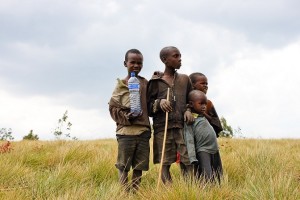
The focus on domestic water supply is, however, just one piece of a much larger puzzle where gender and water is linked to food security, natural disasters, and even child marriages.
In rural Asia and sub-Saharan Africa, women have the responsibility for fetching water in 62% of households; men fetch water in 23% of households, girls in 9%, and boys in 6% of households. This takes up much of a woman or girl’s day as it is usually far to walk to fetch water for the whole family, which is why they are held back from improving their lives and education, but this is not the only reason why water is connected to gender.
We need to look beyond just reducing the time women spend fetching water however and engage them far more in water management, as traditionally, women play a big part in managing water for livelihoods and food security.
Approximately 30% of rural households in Eastern Africa are headed by women and woman account for around 43% of the global agricultural labour force despite being marginalised from decision -making about things like how irrigation water is allocated; access to agricultural technologies like pumps, access to land, and credit.
Women also face higher water security risks; women face major challenges such as physical injuries, difficulties sourcing food, clothing and fuel, stress, and exposure to disease and sexual harassment during and after floods, and more women die as a result of natural disasters than men.
Childhood marriages are also affected by floods and droughts, as girls often carry the burden of a dowry which must be paid to the groom’s family. Older girls carry a higher price, which often means that poorer families opt for the cheaper option, very often a very young girl due to hardships caused by flooding and other climate extremes.
In Africa, the prevalence of HIV is increased in times of floods and droughts as many women sell themselves for food or water; in India low rainfall has been linked to an increase in bride killings or ‘dowry deaths’ in order to access a further dowry from another bride.
Get bottled watercooler and watercooler from Living-Water. Rent water cooler and bottled water cooler in London.





